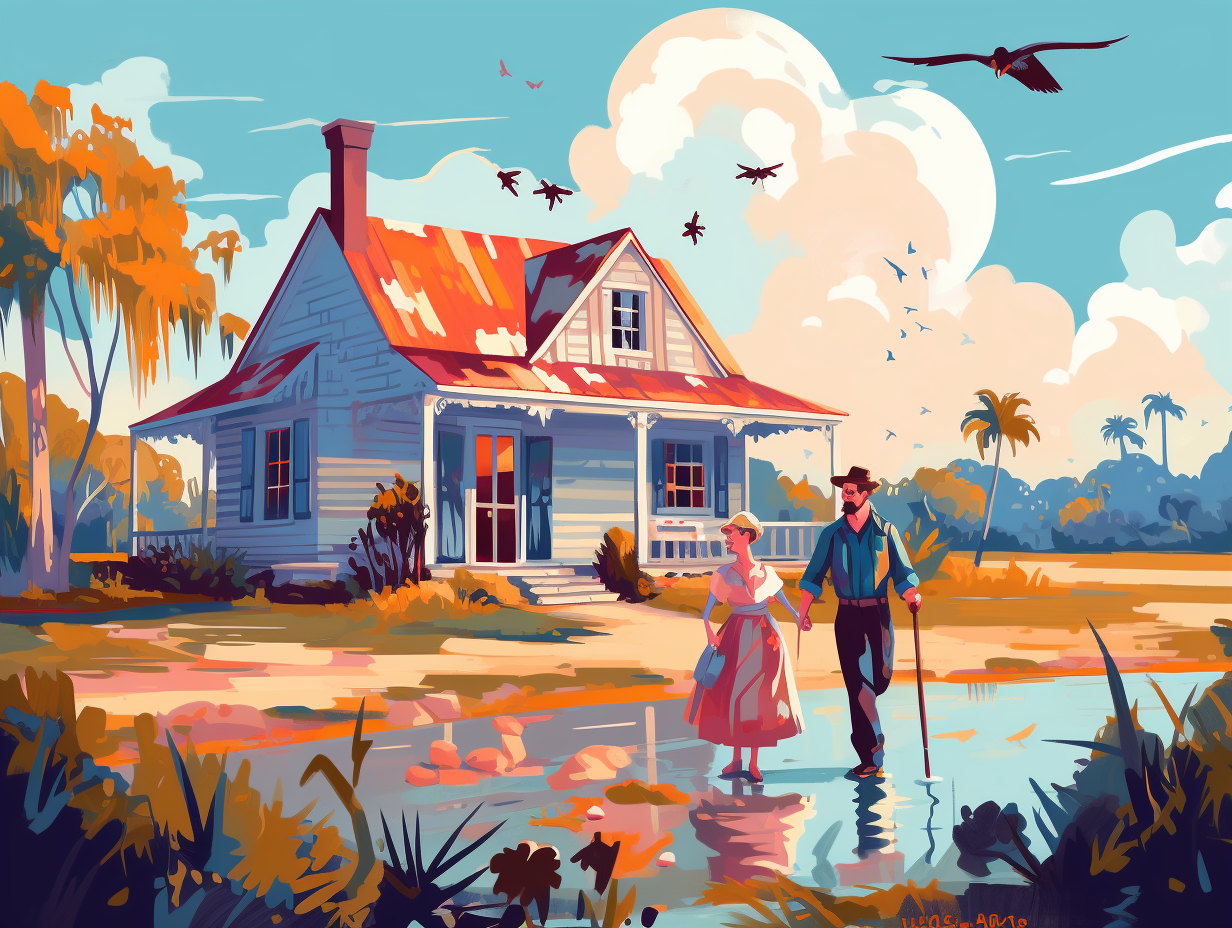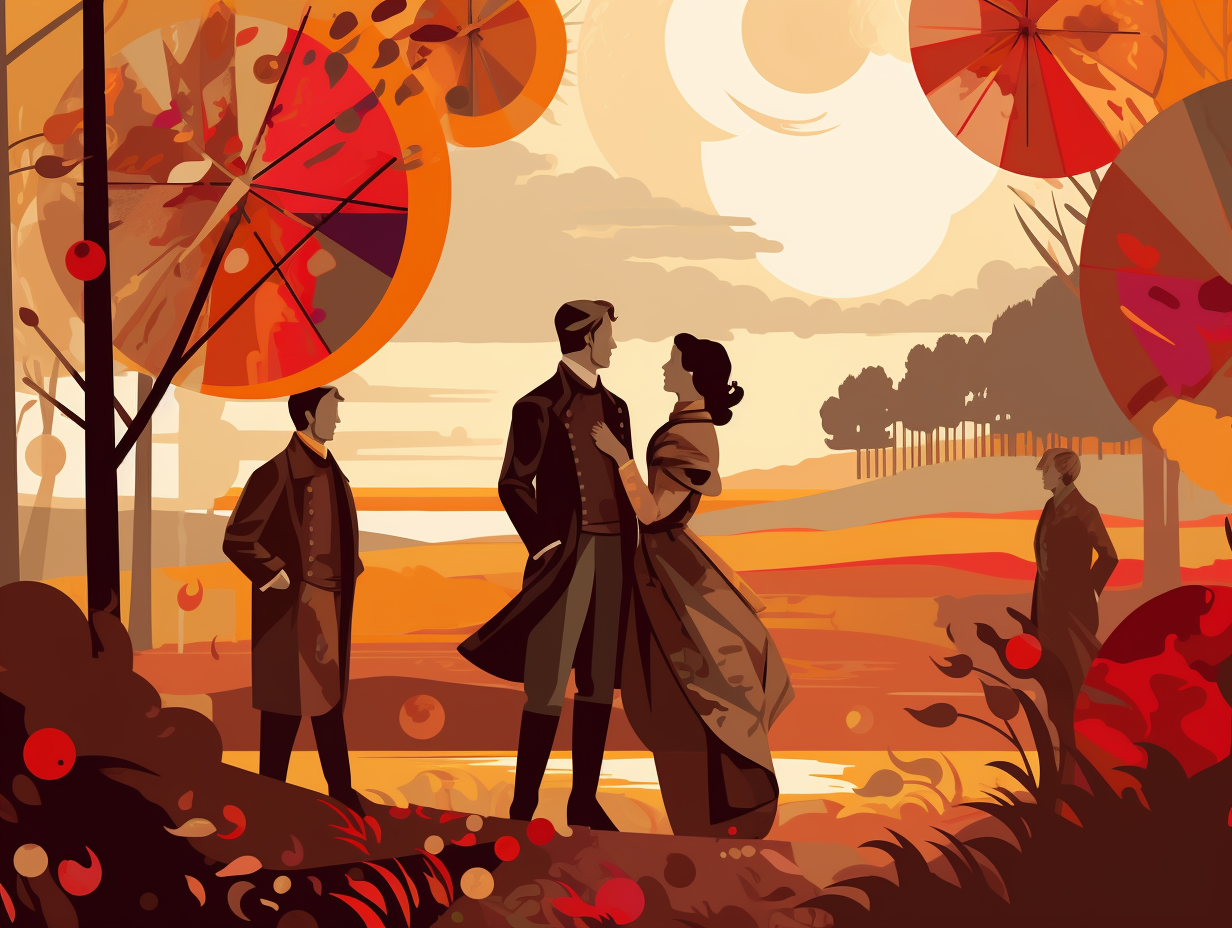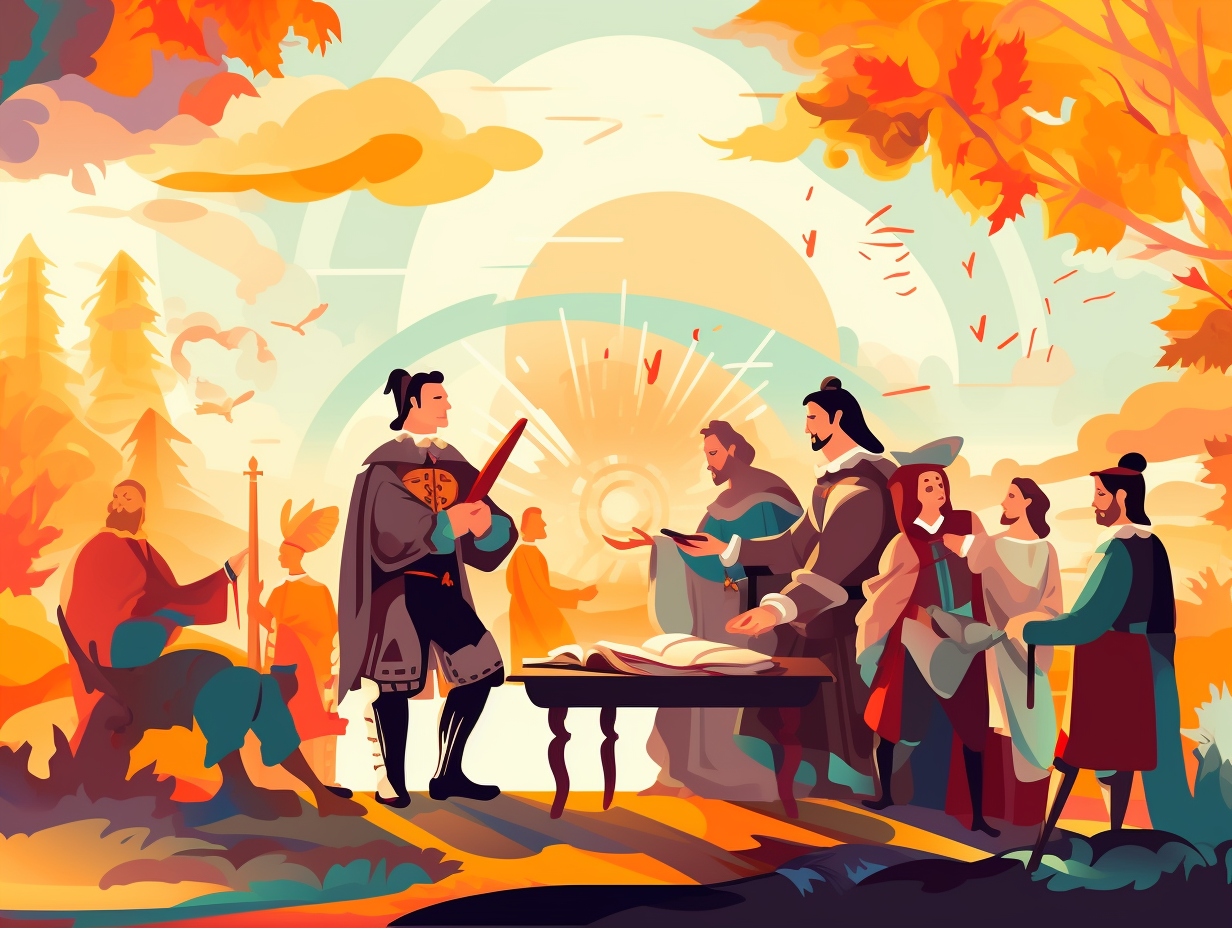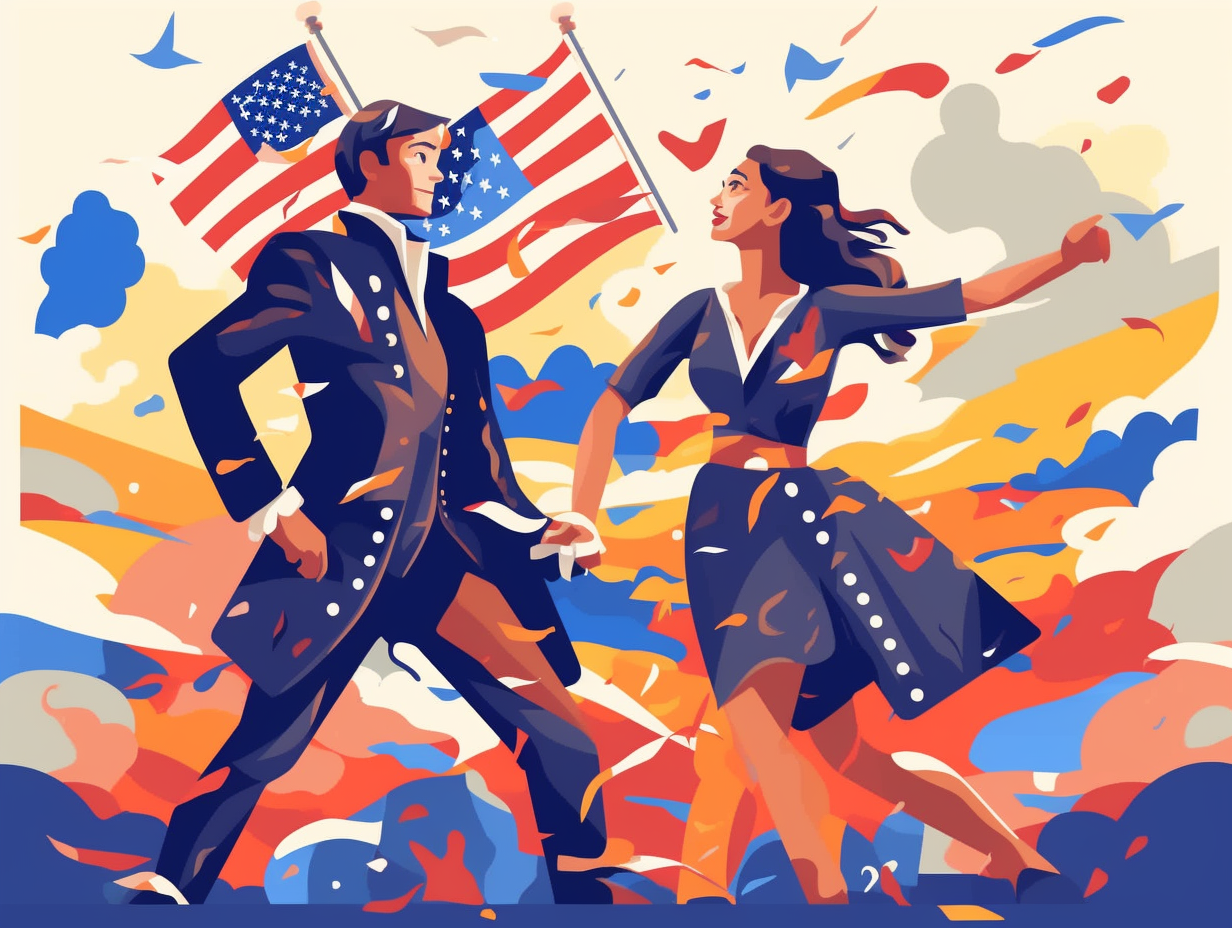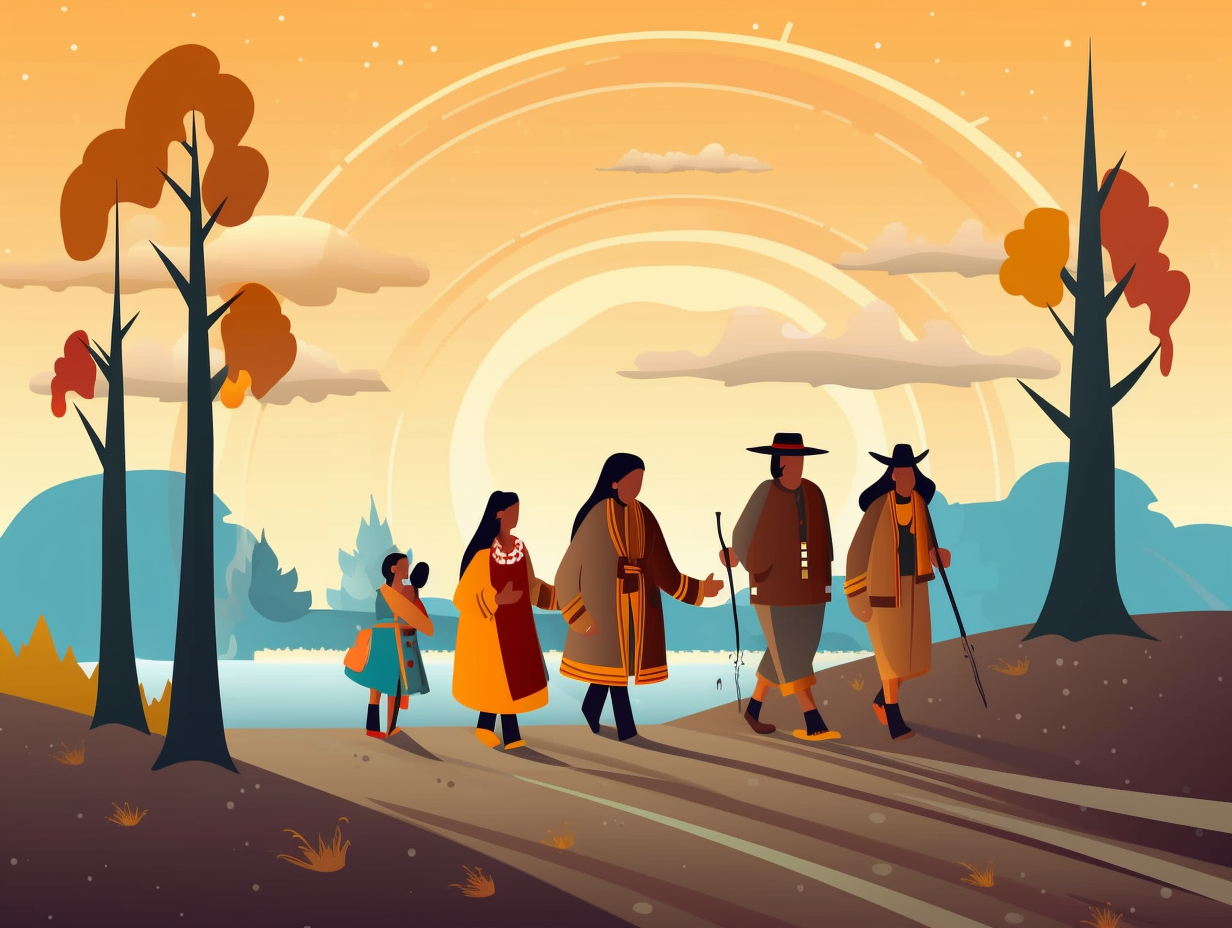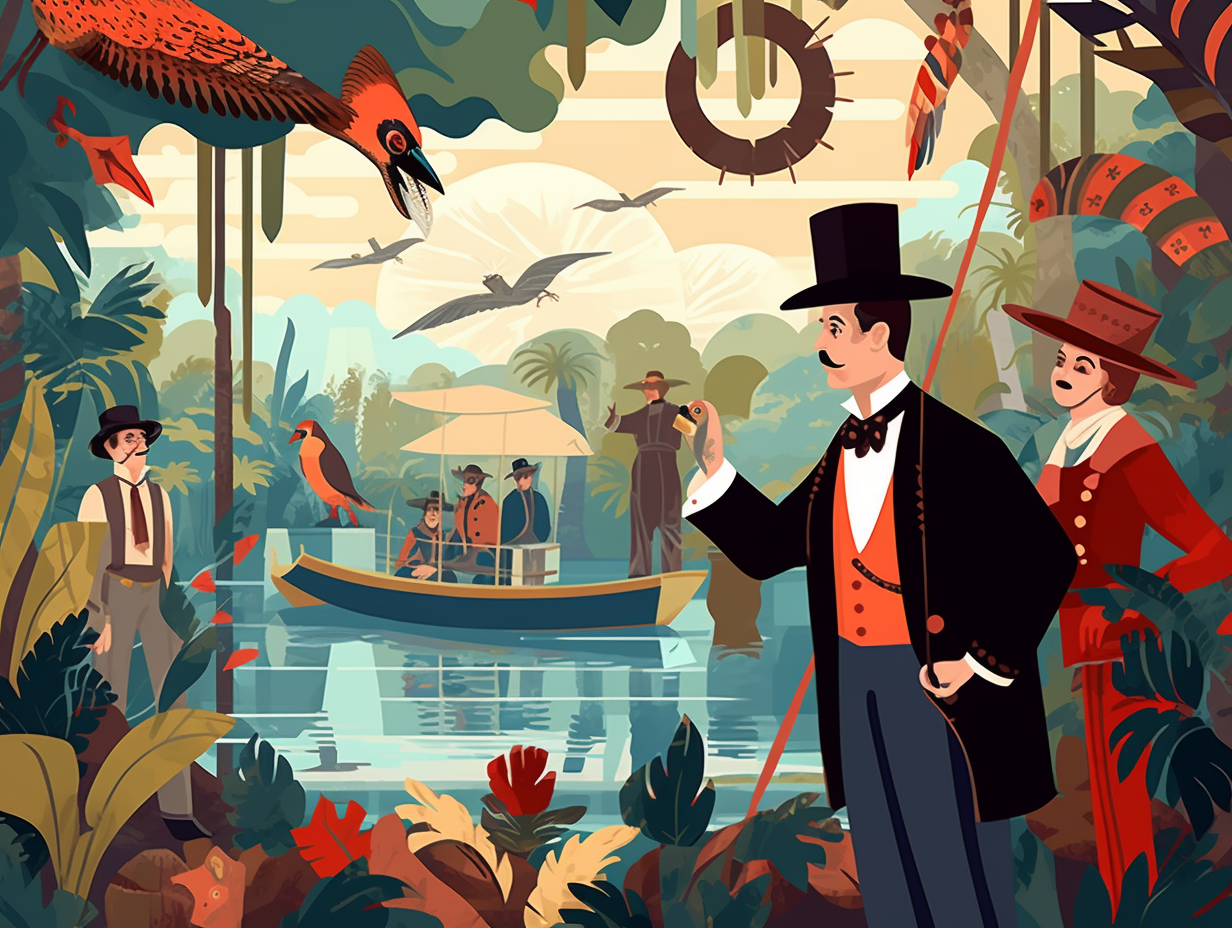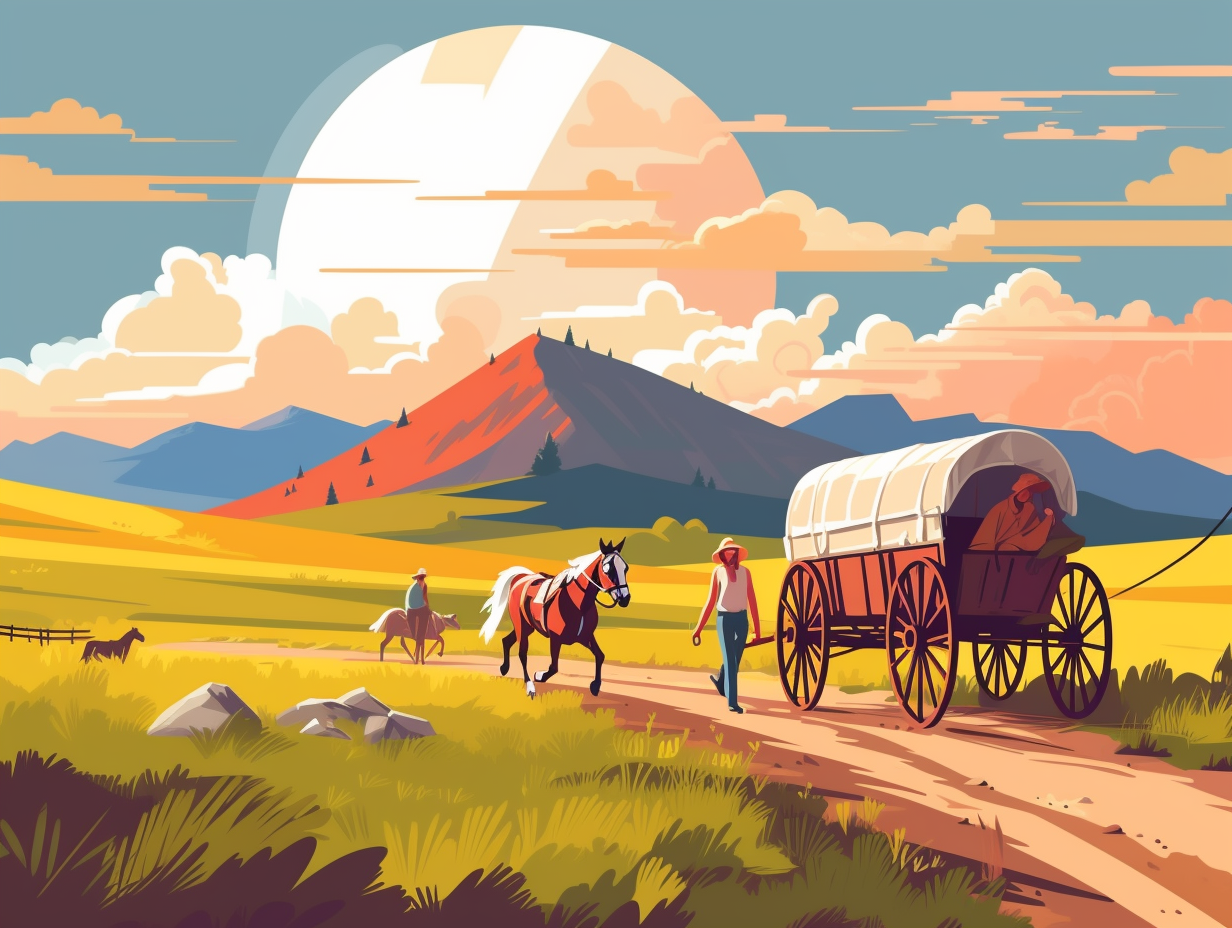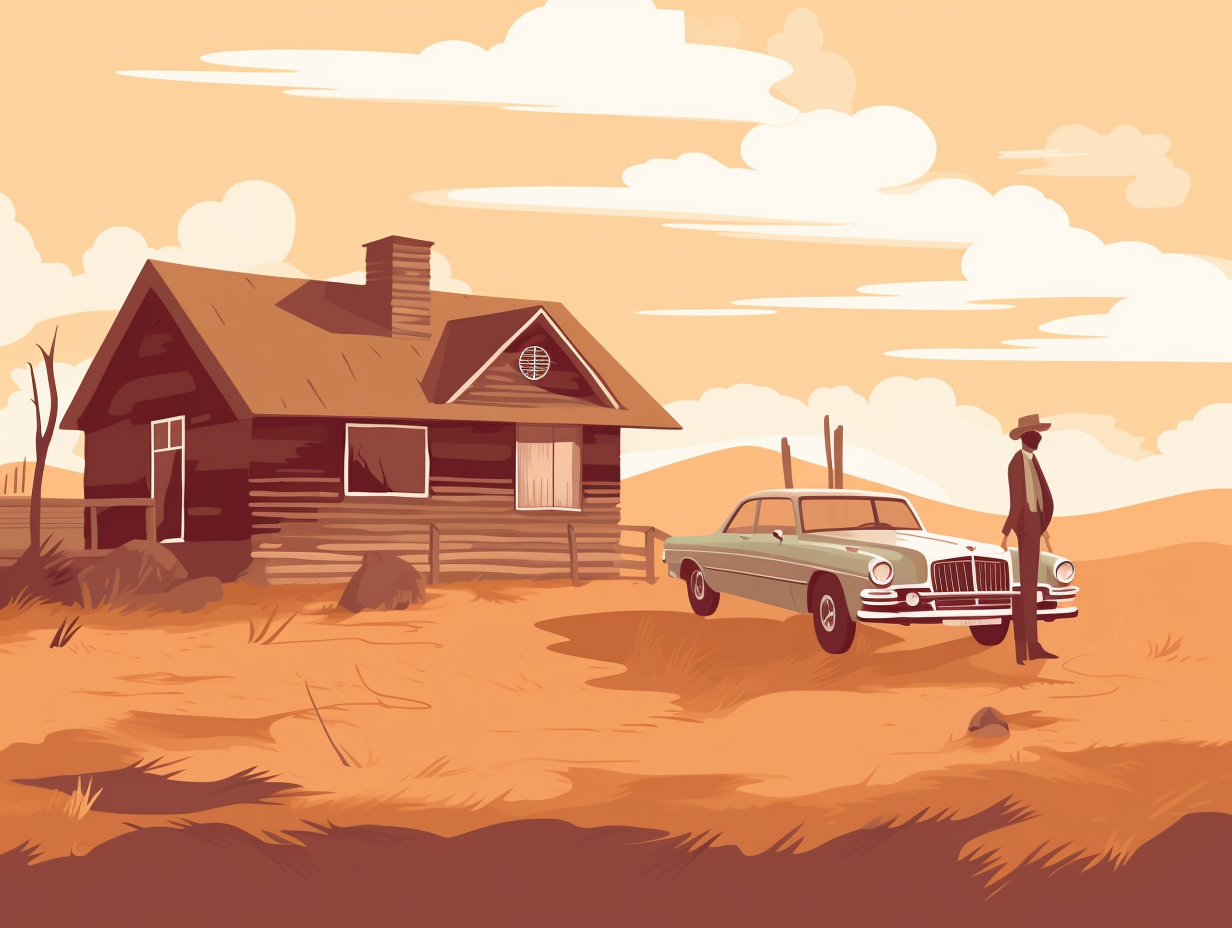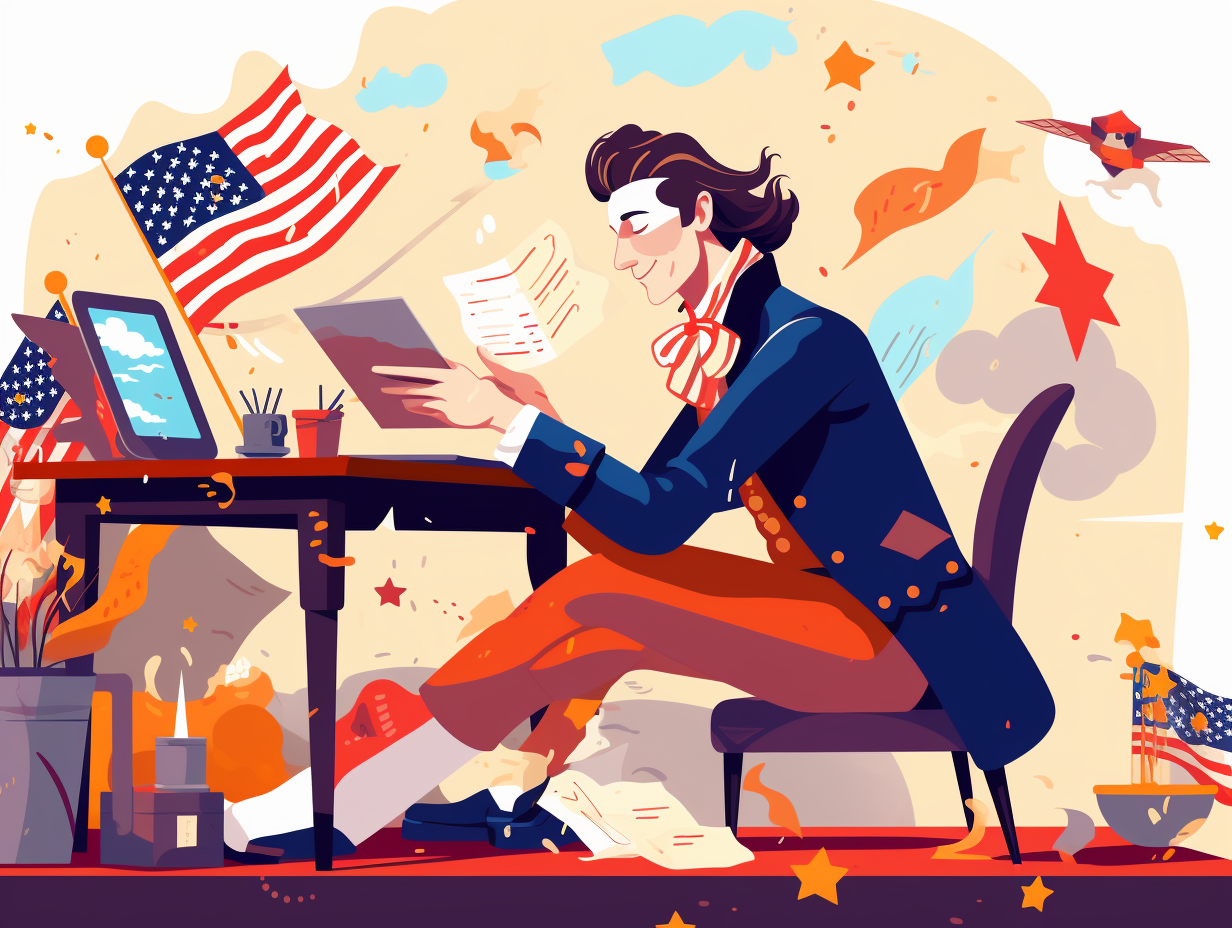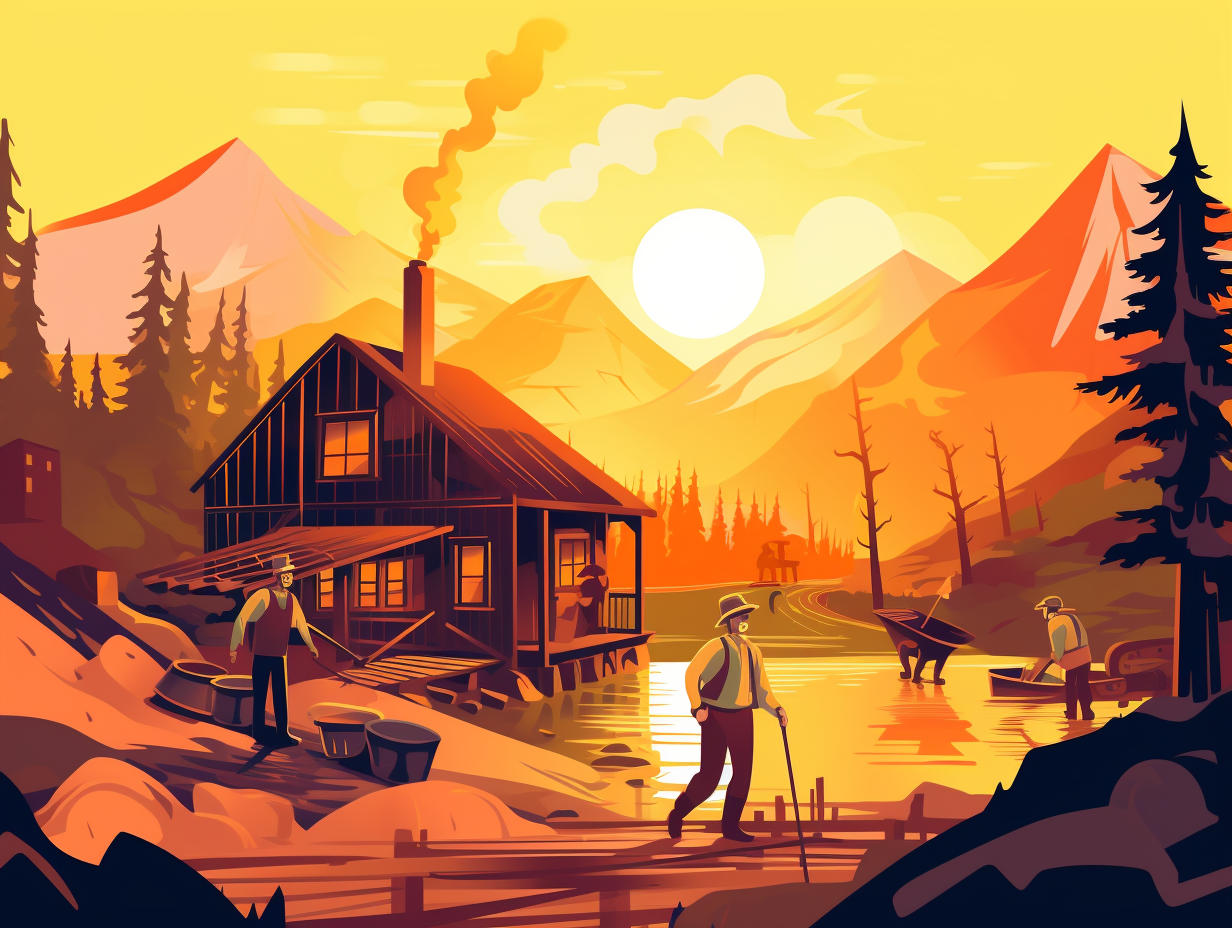Discover the Unexpected: Top 15 Fun Facts About the Proclamation of 1763 You Never Knew!

1. "Can't Fence Me In!" Colonists
You know what they say: "You can't fence me in!" Well, that's exactly what the settlers seemed to be thinking back in 1763: Despite the Proclamation of 1763 attempting to keep those eager Anglo-American colonists within their borders and limit westward expansion, they simply couldn't resist the call of the wild and would frequently shuffle past the fence, causing quite the kerfuffle with the local indigenous peoples.
Source => mountvernon.org
2. Leashing Settlers for Profit
Hold your horses, colonial cowboys: the Proclamation of 1763 wasn't some apologetic postcard from Britain after the French and Indian War shenanigans. Nah, this fancy parchment actually aimed at leashing Anglo-American settlers from sprawling westward into Native American territory, while sneakily keeping their paws on the mercantile money bag.
Source => mountvernon.org
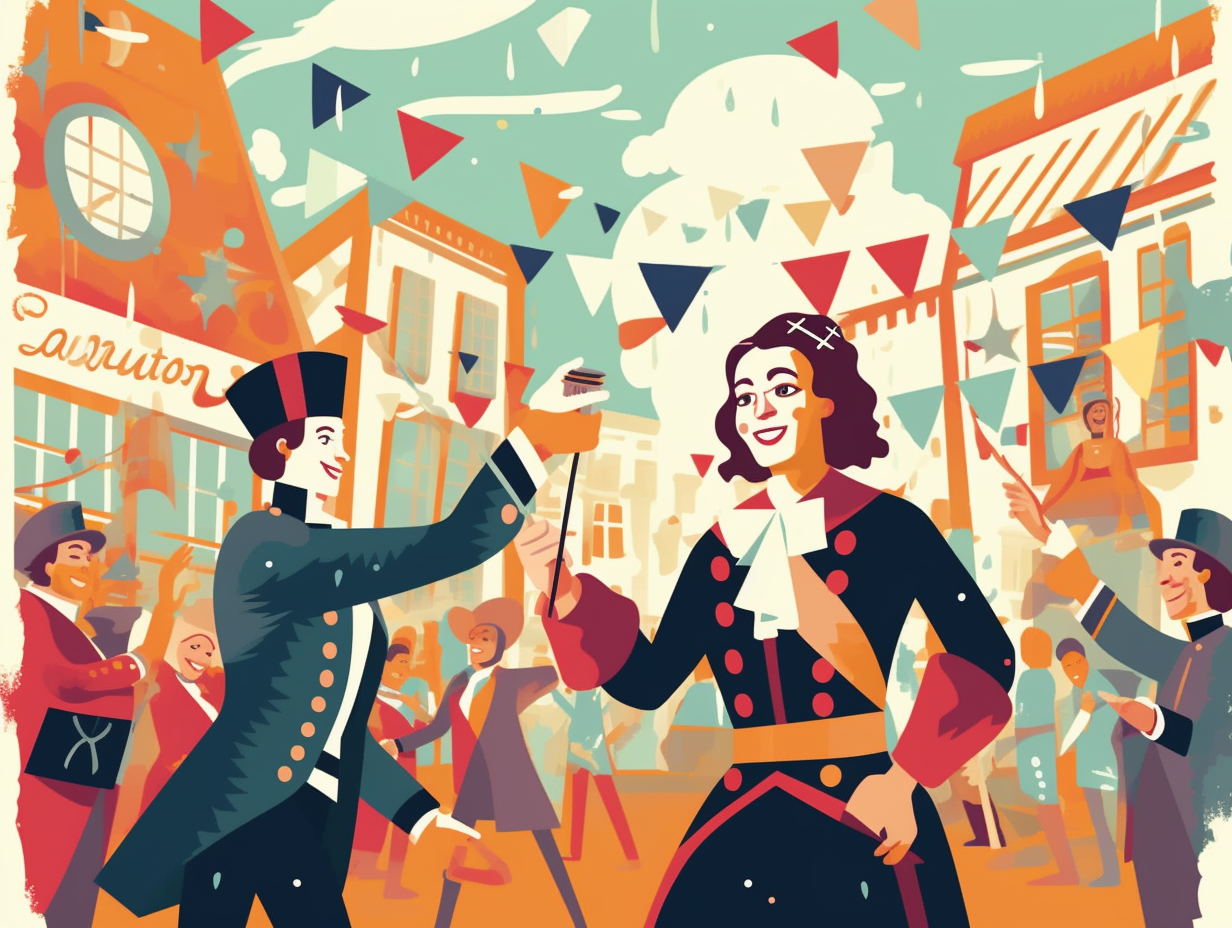
Discover the rebellious origin of the Sons of Liberty and how they outsmarted the British with unbridled determination, eventually paving the way for a historic declaration against taxation without representation! 🕵️♂️🚫💷📜
=> Fun Facts about The-Stamp-Act
3. Line in the Sand: 1763 Edition
You know that awkward moment when you try to avoid an argument with your neighbors by building a literal line in the sand? That was so 1763: The Proclamation of 1763 actually intended to prevent conflicts between white settlers and Native Americans by forbidding expansion westward beyond the Appalachian Mountains, creating a boundary known as the proclamation line, which protected Native American lands from encroaching settlements.
Source => history.com
4. Hold My Beer, King George
Who needs rules when you've got the great American spirit of exploration? The colonists back in 1763 sure didn't: Despite the Proclamation of 1763 aiming to restrict westward expansion, many settlers were like, "Hold my beer, King George," and boldly continued to claim land beyond the designated boundary, much to the chagrin of Native American tribes.
Source => mountvernon.org

5. Can't Stop Me, King George!
In an ironic ode to the rebellious spirit of The Beatles' hit "Can't Buy Me Love," American colonists said, "You can't stop me, King George!" as they flippantly disregarded his Proclamation of 1763: Despite the royal decree aiming to keep colonists from infringing upon Native American land, settlers marched westward past the Appalachian Mountains, continuing trade and even striking deals with indigenous tribes—sans royal blessing, of course.
Source => history.com
6. Colonists Gone Wild!
In an early episode of "Colonists Gone Wild!", settlers ventured beyond the boundaries set by the British government, risking life, limb, and a stern talking-to from King George III: The Proclamation Line of 1763, designed to maintain peace between American colonists and Native Americans, was largely ignored by westward-expanding settlers, resulting in conflicts like Pontiac's Rebellion – who knew that boundary lines could lead to such boundary issues?
Source => mountvernon.org
7. "Mother, May I?" with the Crown
Imagine American colonists playing a game of "Mother, May I?" with the British Crown, only to be told they can't take a giant leap westward: The Royal Proclamation of 1763 actually prohibited those wacky settlers from venturing beyond the Appalachian Mountains, while also defining the Indian Reserve as the territory wherein Native Americans could dwell without pesky colonists disturbing their peace.
Source => ushistory.org
8. Daniel Boone's Wild Frontier
Who needs rules when you're the king of the frontier? Daniel Boone was no stranger to bending boundaries – in the name of expansion, of course: Defying the Royal Proclamation of 1763 that barred American colonists to venture west of the Appalachians, Boone moseyed on through the Cumberland Gap and set up settlements in the off-limits Ohio Valley, ultimately triggering tensions and confrontations like Pontiac's Rebellion between colonists and Native American inhabitants.
Source => ushistory.org
9. Judge Judy? No Need!
Who needs Judge Judy when you've got a proclamation?: The Proclamation of 1763 didn't bother creating courts or appointing judges to enforce it, relying on local colonial governors to put the brakes on westward expansion, and the only legal consequences—fines and imprisonment—were about as rare as hen's teeth.
Source => mountvernon.org
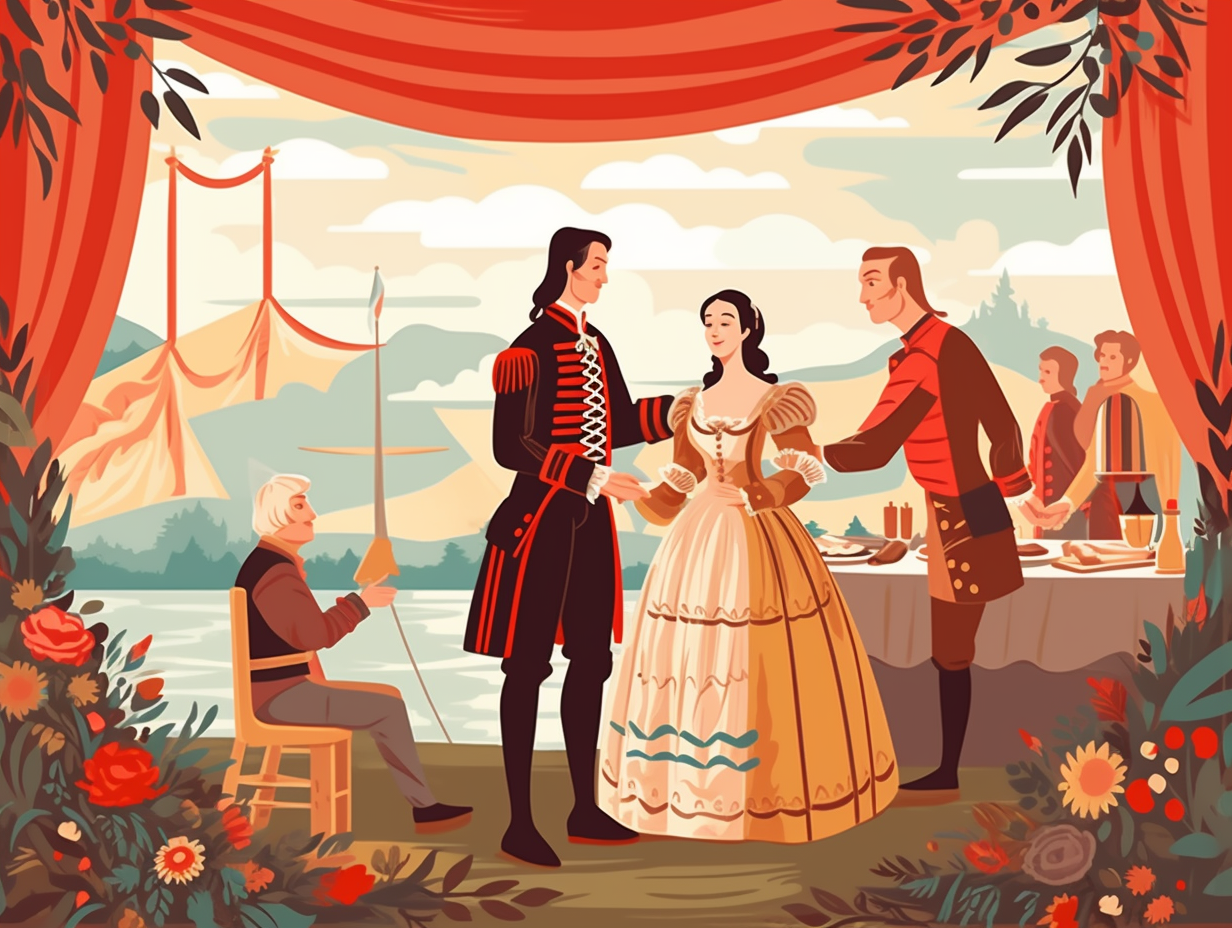
10. Prophet George Washington
Well butter my biscuits and call me a prophet, it's George Washington the land speculator: Before becoming the Commander-in-Chief of the Continental Army, George Washington opposed the Proclamation of 1763 and successfully lobbied for treaties pushing the border further west, ensuring the prosperity of wealthy Virginia land speculators like himself.
Source => mountvernon.org
11. Rogue Investors Galore
Who says crime doesn't pay? Back in the 18th century, rogue investors – including the likes of Patrick Henry and Henry Laurens – were too cool for British monarch's rules: They ignored George III's Proclamation of 1763, which banned colonists from settling west of the Appalachian Mountains. Instead, they scooped up Native American land for a quick profit, leading to boundary shifts, Native American wars with the British, and some legal legacies in Canada.
Source => history.com
12. Friendly Suggestion, Not a Rule
In a classic case of "rules are made to be broken," our fearless colonists decided that the Proclamation of 1763 was more of a friendly suggestion than an actual rule: This royal decree was intended to curb westward expansion and prevent conflict with Native American tribes, but instead, the settlers charged forward, ignoring the boundaries and unwittingly sparking Pontiac's Rebellion in the Ohio Valley and Great Lakes regions that same year.
Source => mountvernon.org
13. Damper on Land Enterprises
Hold your horses, George Washington: the Proclamation of 1763 didn't just limit settlers' "manifest destiny" but also blocked the ambitions of Virginia land companies, including our first president's own. Serious reveal: Despite trying to curb westward expansion, the Proclamation had minimal influence on individual pioneers, yet it efficiently put a damper on the plans of these land enterprises because they couldn't secure proper titles to their claims due to the imposed restrictions.
Source => mountvernon.org
14. Washington's Real Estate Push
Who knew George Washington doubled as a savvy real estate investor? He literally pushed the boundaries in America's birth story: Opposing the Royal Proclamation of 1763, Washington argued for westward expansion, which led to subsequent treaties in 1768 and 1770, moving the borders further west for his land investments.
Source => mountvernon.org
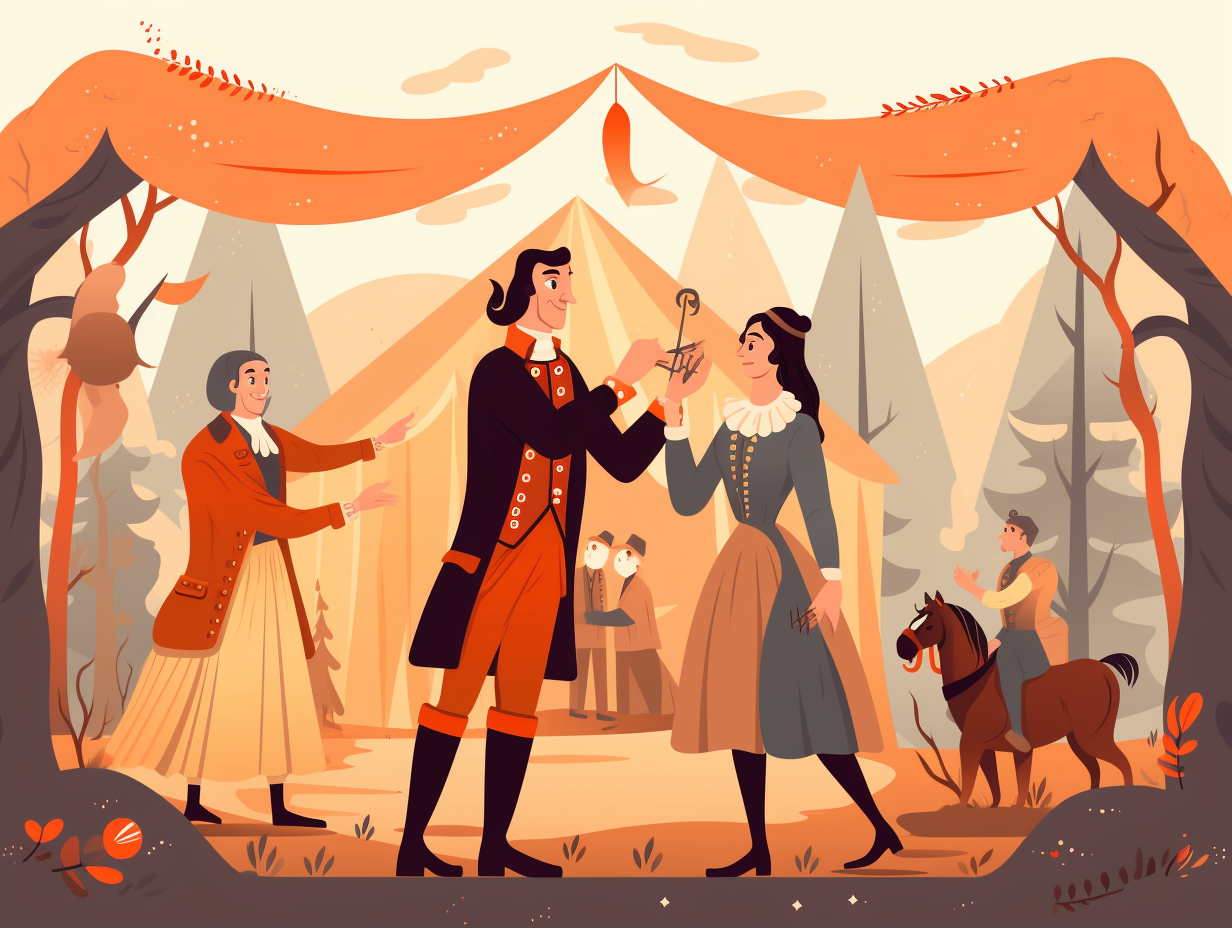
15. Rebellious George's Land Love
Just when you thought you knew all the rule-breakers in history, there's one rebellious land-lover you might have missed – ol' George Washington himself! That’s right, friends, hold onto your powdered wigs: Despite the British government's efforts to restrict westward expansion with the Proclamation Line of 1763, many colonists, including George, continued to invest in land speculation and disregarded the boundary with few consequences.
Source => mountvernon.org
Related Fun Facts


